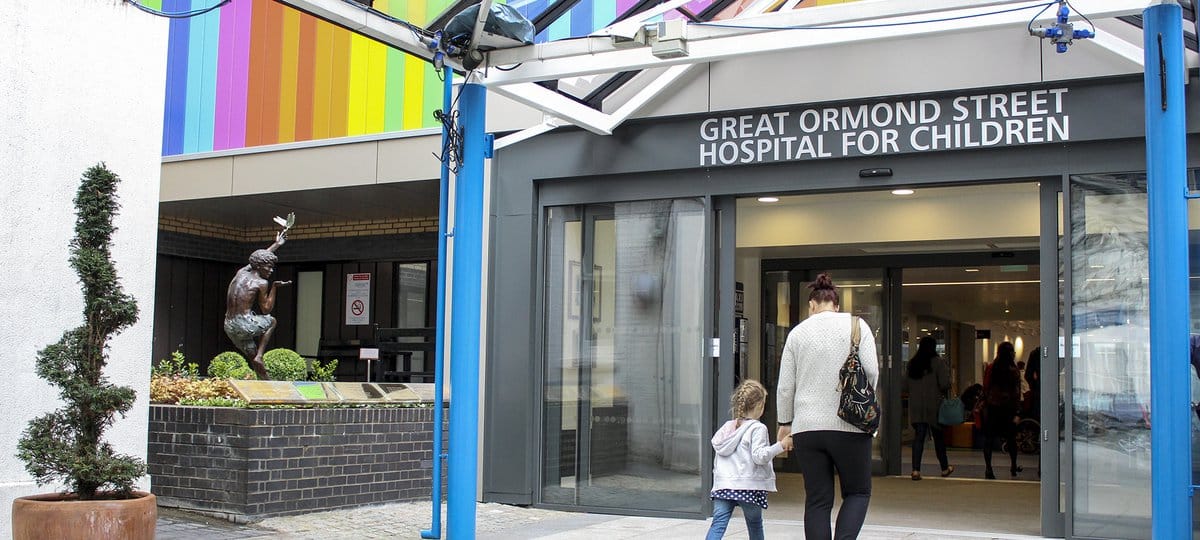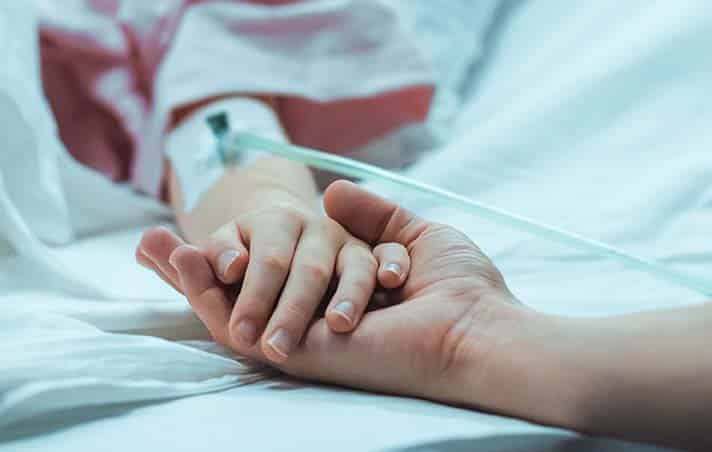LifeArc and Great Ormond Street Hospital Children’s charity (GOSH) have jointly awarded more than £1.3 million of funding to help four GOSH researchers, based at the UCL Great Ormond Street Institute of Child Health and Great Ormond Street Hospital for Children NHS Foundation Trust, progress their scientific discoveries towards new tests and treatments for rare diseases affecting children.
Grants for translation research
Four grants have been awarded to projects that aim to translate research discoveries into benefits for children affected by rare diseases. The projects aim to develop interventions for a range of rare but severe conditions; an inherited metabolic illness that can cause irreversible brain damage; a group of genetic eye diseases that lead to gradual loss of sight; a genetic syndrome that affects the kidney in early childhood; and a form of epilepsy that causes regular seizures that can affect a child’s quality of life and brain development.
Professor John Counsell is developing an innovative gene therapy for children with a metabolic illness called Maple Syrup Urine Disease (MSUD). Without treatment, affected children can develop severe, life-threatening symptoms – including seizures and coma. The team is carrying out laboratory experiments to test the safety and effectiveness of the new treatment, laying the foundations for a future clinical trial.
Professor Jane Sowden is developing a new treatment for a group of inherited eye diseases affecting the light-sensing cells (rods and cones) in the retina at the back of the eye. In children with cone-rod dystrophies (CORDs) and cone dystrophies (CODs), these cells eventually die, causing sight loss that worsens over time. The team is carrying out laboratory research to investigate whether human stem cells created in the lab can repair damage to the retina.
Professor David Long is aiming to develop a new treatment for children with a rare genetic kidney syndrome called Denys-Drash syndrome (DDS). The team has designed a nanocomplex therapy that aims to boost a protein called angiopoietin-1 and help protect the kidneys from damage. They will test their novel therapeutic in a laboratory model of DDS, delivering it using a unique technique involving ultrasound imaging to guide an injection directly into the kidney’s blood supply.
Mr Martin Tisdall is aiming to progress a potential new treatment for Lennox-Gastaut syndrome (LGS), a severe type of epilepsy that begins early in childhood. He is leading a clinical trial to investigate the safety and effectiveness of deep brain stimulation (DBS) therapy – implanting electrodes into specific parts of the brain and then stimulating these areas with small electrical impulses.
Working in partnership
Dr Catriona Crombie, LifeArc’s Associate Director Technology Transfer and Philanthropic Fund Manager, said: “We are delighted to partner with GOSH Charity to fund these four innovative research projects, bringing the total number of projects supported through this joint funding scheme to seven.
“Through this collaboration, we hope to accelerate the delivery of life-changing tests, treatments and cures for children affected by rare diseases and their families.”
This is the second tranche of grants awarded by the joint LifeArc & GOSH Charity Fund, which provides funding for translational research projects focused on developing interventions to improve the lives of children with rare diseases.
Dr Kiki Syrad, Director of Impact and Charitable Programmes at GOSH Charity, says: “Working in partnership to fund pioneering paediatric medical research is absolutely central to our ambition, which is to transform the lives of seriously ill children. I am thrilled that, thanks to the generosity of our amazing donors and supporters, we have been able to make grants to these four fantastic projects.
“These, along with the other projects we have jointly funded alongside LifeArc, will offer much needed hope to many seriously ill children.”




